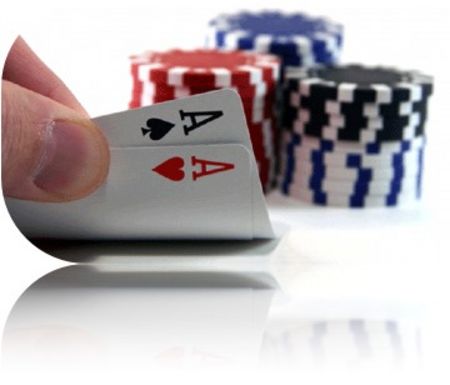Position Relative to Your Opponent

One important lactic to help you in playing your opponent is your position at the
table relative to your opponent. For example, you want to play more hands against
poor players or maniacs; therefore, it is to your advantage to be sitting to their left.
When they enter the pot, you can play a few more hands. When you are sitting to
their right, you never know when they are going to play or raise, so you'll have to
generally use your same tight starting hand criteria as normal. Another advantage
of sitting to their left is that you can raise or reraise to try and isolate yourself
against the poor player.
Generally it is also good to sit to the right of tight players, especially when the
overall game is relatively tight. You should have more opportunities to steal the
blinds. Your raises will tend to drive these opponents out of most of the pots. On the
flop, you can often bet out and get these types of opponents to fold. Sometimes,
however, it can be an advantage to have these types of players sitting in front of
you. If they are so tight that they only bet the very premium hands, you can easily
fold your borderline hands whenever they enter the pot.
There is one player at Paradise Poker who I love to play against for just this reason.
He is a top player who wins a lot of money; however, this player practically never
check-raises or slowplays. He always bets out his strong hands; therefore, when he
bets, I can easily fold unless I have a super strong hand also. On the other hand, if
he checks, I can try to steal the pot since I never have to worry about him check-
raising. If he was sitting on my left, I would not be able to use this valuable
information nearly as much since I would always have to act before him.
As a side note, one interesting thing about this player is that he is still able to win a
lot of money because most of his opponents are not very observant and do not
recognize this part of his game. My PokerStat software (discussed in a future
chapter) was a great help when I saw that he had only check-raised five hands out
of 5000!
Internet Tip
If you are on the Internet and want to change seats, view the lobby and see if there is a waiting list
for the game. If there is a list, there is nothing you can do. However, if no one is waiting to enter the
game, simply leave the game and then come back in so that you can select your new seat.
Sometimes missing a few hands, even if you already posted the blinds, is worth the new seat, so
don't always wail until you have to post again before moving.
Flow of the Game
You should also mix up your strategies based on the flow of the game to keep your
opponents off balance. For example, if you have check-raised the same opponent a
few times in a row with a strong hand, you might try betting out the next time. He
might then suspect that you are on a bluff and may play back at you. On the other
hand, if you have bet out a few strong hands several times in a row, you might want
to check-raise.
Another tiling to be aware of is the different moods of your opponents. An
opponent's mood can change his playing style so always be looking for changes,
this is especially true against regular opponents you play often.
Playing your opponent is an important skill to raise your game to an advanced level.
Poker is not meant to be played using a formula. Observe your opponents and
recognize their strengths and weaknesses so that you can use this knowledge
against them. Knowledge equals opportunity!
Review
To raise your play to an advanced level, it is critical that you recognize opportunities
to take advantage of each opponent's strengths and weaknesses.
Some things to consider when playing your opponent include:
-
Play more hands against players with loose starting hand requirements and
fewer hands against tight players.
- Play more hands against players who play poorly after the flop.
- Don't bluff very often against loose players and play aggressively against
light players.
- Induce bluffs against loose aggressive players. Induce calls against tight
players.
- After the flop, tend to call, raise, and reraise your borderline hands against
aggressive, tricky opponents and fold against rocks who never bet or raise
without a strong hand.
- Note the playing style of your opponent preflop is sometimes different than
after the flop.
- Generally try to sit to the left of maniacs and to the right of tight players.
- Mix up your strategies based on the flow of the game to keep your
opponents off balance.
NEXT...Bankroll Management

